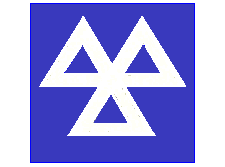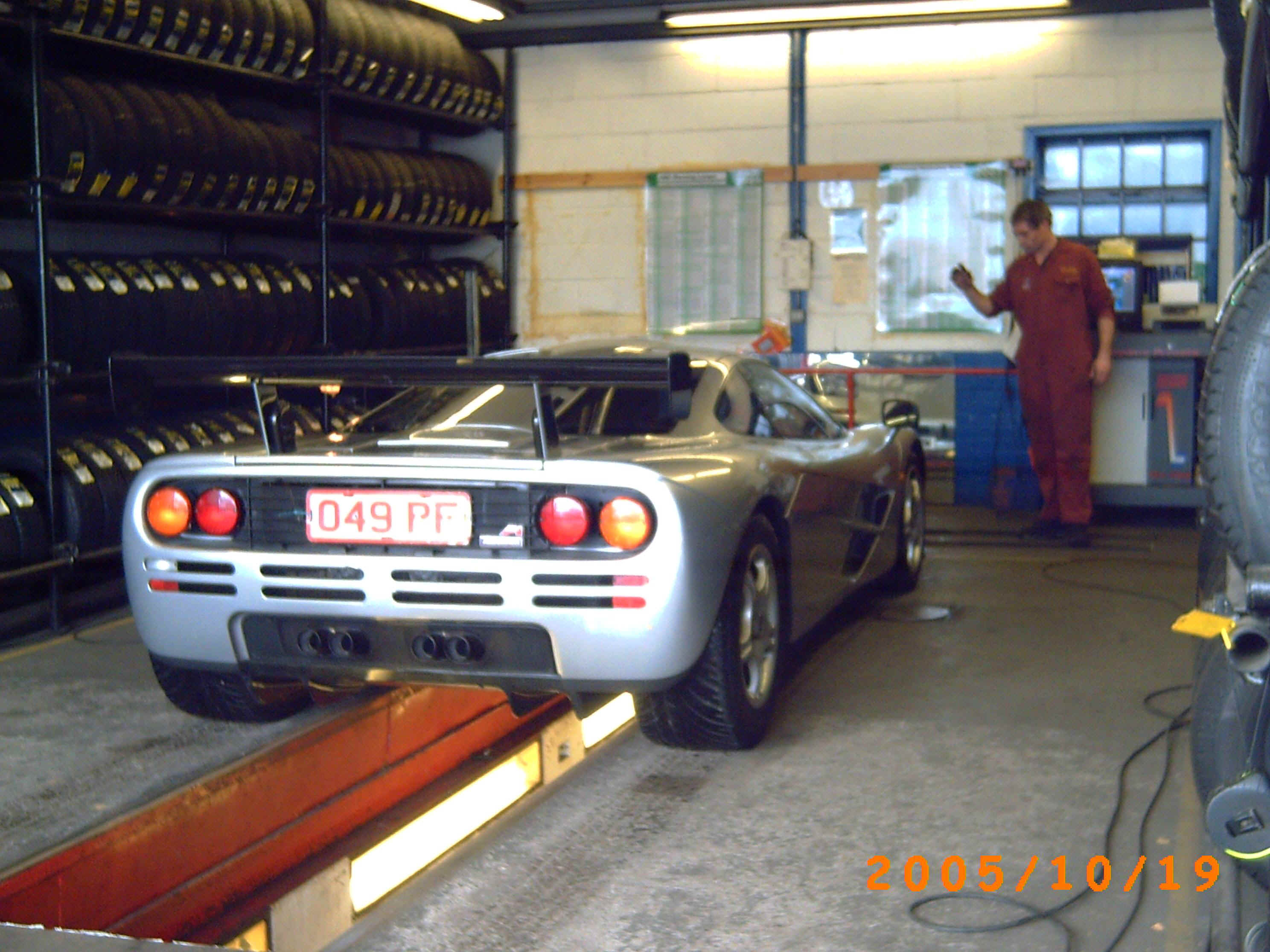|
Trade
| |
 MOT test
checklist
MOT test
checklist 
We carry out
MoT tests on all cars and vans up to 3500kg
Cars, vans
class 4 & 7, campers motor homes & high tops from Mini's to Transit
vans.
We are now also able to offer class 5 Light private minibus testing up to
50000kg .

McLaren F1 Road Car
waiting for its MoT test
What checks are carried out in a Mot Test?
The
test is split in to six main groups
Lights
Front and rear lamps etc, headlamps, headlamp aim, stop lamps, rear reflectors,
direction indicators, hazard lamps, rear fog lights.
Steering
and Suspension
Steering Control, steering mechanism/system, power steering, transmission
shafts, wheel bearings, front suspension, rear suspension, shock absorbers.
Tyres
and Wheels
Tyre size/type, tyre condition, road wheels.
Brakes
ABS warning system/controls, condition of service brake system, condition of
parking brake system, service brake performance, parking brake performance.
Seat
Belts
Mountings, condition, operation, position.
General
Drivers view of the road, horn, exhaust system, exhaust emissions, vehicle
condition, mirrors, fuel system registration plates and VIN numbers.
Test
Procedure
- The
examination looks in detail at all of the above components. The tester is
required to follow a procedure and with an assistant will examine the
vehicle accordingly, noting and detailing any items that fail.
-
- The
test is not the same for all vehicles and certain types due to their age and
design when produced, may have exemptions from some aspects of the test or a
greater tolerance level or failure limit. This mainly applies to Classic and
Vintage vehicles, however proof of first registration year and production
may be required. If in doubt check with your local test station prior to an
examination.
-
- For
private motor vehicles a valid test certificate is required on the third
anniversary of its first registration. However, it is now possible to have a
vehicle tested up to 30 days prior to this date and to have the expiry
post-dated to the original registration day.
-
- The
test also applies to the following years tests, thus enabling owners to have
time to rectify any failures which a test might find and to have a retest
prior to the expiry date of the current certificate, without any loss of
certificate length.
-
- Should
a vehicle not have a current MOT it must not be used on the public road.
However, to ensure you are legal when re-presenting the vehicle for an MOT
retake you must book an appointment and record your name and vehicle
registration at a local test station, prior to driving the vehicle
there.
-
- It
is possible to obtain from TSO a copy of the Testing Manual for vehicles
produced by the Vehicle Inspectorate. (TSO Orderline 0870 6005522) The
publication is amended regularly and purchased separately . However, for
most owners and drivers, the usefulness of the manual may be limited, as it
requires an understanding of testing procedures.
-
- Should
the vehicle fail, you will be issued with a VT3O Certificate stating the
items causing failure. Be sure you are clear as to what rectification is
required for a pass to be issued. In certain cases expert or special
services may be required regarding emissions or welding.
- Current
re-test conditions and fees involved will be posted at the MOT test
centre.
·
Pre
Test Checks
- A
vehicle that is in good condition, that has been regularly serviced and
maintained to manufacturers specification, should be able to pass the test.
However it must be remembered that items can deteriorate between services
and tests.
- The
condition of corrosion is not easily checked and is best left to be examined
during the test.
- Items
which can be easily checked by the owner or driver such as lights,
windscreen washers, wipers, horn, mirrors, seatbelts, fuel and tyres
(including pressures) should be done so regularly and just prior to the
test. It can be very frustrating to receive a failure for one empty washer
bottle, a torn wiper blade and stop lamp bulb not working, not least
illegal.
-
- Get
someone to stand outside the car while all lights front, rear and hazard are
checked. Replace or repair if broken or faulty.
-
- Ensure
that the number plates and the Vehicle Identification Number (VIN) plate is
clean and legible.
-
- Remember
to check indicators.
-
- Check
suspension by applying your weight to each corner of the car then release.
The car should settle down quickly.
-
- Check
the operation of footbrakes and handbrakes. Also check Anti Lock breaking
systems (ABS) light operation if fitted.
- Check
that seatbelts operate correctly.
-
- The
examination of the tyres does not include the spare. A tyre depth of 1.6mm
is the legal minimum requirement. Check tyres are inflated making sure they
are not damaged. Whilst the spare tyre is not part of the test it is to be
advised that a correctly inflated and legal tyre / wheel should be carried.
-
- Check
the driver's view for damage to the windscreen. Testers will check that
damage is no larger than 40mm in the whole of the swept area of the screen
and that in the central view of the driver, called Zone A which is 290mm
wide (within the swept area and centered on the steering wheel), any damage
is no larger than 10mm wide.
-
- To
check the exhaust start the engine and from the rear of the vehicle listen
for excessive noise which could indicate an exhaust leak. Emission checks
are an important part of the test. Regular servicing should alleviate
problems with emissions.
-
- Check
under the bonnet to ensure that the brake fluid reservoir, windscreen washer
bottle and engine oil reserves are topped up correctly.
-
- A
general check around the vehicle should be made to ensure that the car's
fuel cap is secure, mirrors are in good condition, wipers are not damaged,
or split and locks work.
-
And
Finally...
Make sure you take your V5 Vehicle Registration Document and current MOT
certificate to the test.
The
MOT Test is not a substitute for the servicing of a vehicle nor a statement of
the condition of a vehicle offered for sale.
We
do all this for Just:-
£50.35
For cars and class 4 vans.
£52.00
class 7 vans. Price correct at February
2006 Home
We welcome new customers
from the local area Cobham Byfleet West Byfleet Addlestone Chertsey Esher
Weybridge Walton on Thames Ripley Woking and the surrounding area.
|